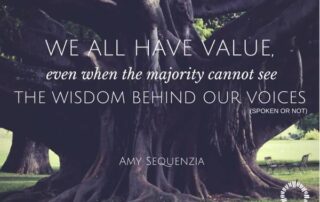Assumptions and Ableism
I've recently read an article about how some researches are slowly starting to debunk long held assumptions about autism, Autistics, functioning labels, and how the world needs to provide more appropriate education to “all” Autistics. This is a quote from a researcher (Laurent Mottron): "Early childhood interventions should focus on harnessing strengths, rather than erasing the difference between autistic children and neurotypical kids" Of course, Actually Autistic people have been saying this forever. We have been warning parents about the damages caused by "therapies" that seek to train Autistics to make us look "indistinguishable from our peers” for a long
Joe Flacco Pledges to No Longer Use the R-Word
Baltimore Ravens quarterback and Superbowl MVP Joe Flacco has made a commitment to no longer use the R-word, joined by teammates Ed Dickson and Gino Gradkowski. The three men signed the pledge not to use the R-word anymore from the Spread the Word to End the Word website on May 20 and had their photos taken with representatives from the Maryland Special Olympics. Flacco’s commitment to the movement to stop use of the R-word comes on the heels of using it during Superbowl week at a press conference. He apologized the next day, concerned that his “bad choice of words” would damage
Abuse of Children with Intellectual Disabilities
Children with disabilities of any kind are not identified in crime statistic systems in the U.S., making it difficult to determine their risk for abuse (Sullivan, 2003). A number of weak and small-scale studies found that children with all types of disab
Child Positive Impact:The Disability-Culture Connection
This study examined mothers' perceptions of the positive impact of having a child with an intellectual disability. Trajectories of positive impact from 7 time points were developed using latent growth modeling and 2 predictors: culture (Anglo, Latino) and child disability status (intellectual disability, typical development). Data were from 219 mothers of children from age 3 to 9 years. Growth trajectories reflected a general decline in positive impact on Anglo mothers. On average, at age 3, Anglo mothers reported significantly lower initial values on positive impact when their children had an intellectual disability, but Latino mothers did not. Across all time points, Latino
People Are Watching Mr. Hughley
Mr. Hughley, we think you can do better than using the r-word. You said your son doesn't mind you using the word, but there are so many people that do. Words like the r-word perpetuate negative stereotypes about people with disabilities, please don't use it.
President’s Committee for People with Intellectual Disabilities
The mission of PCPID is to provide advice and assistance to the President of the United States and the Secretary of Health and Human Services on a broad range of topics that impact people with intellectual disabilities and the field of Intellectual Disabilities. Undergirding the Committee’s mission is the goal to improve the quality of life that is experienced by people with intellectual disabilities, by upholding their full citizenship rights, independence, self-determination, and life-long participation in their respective communities.


